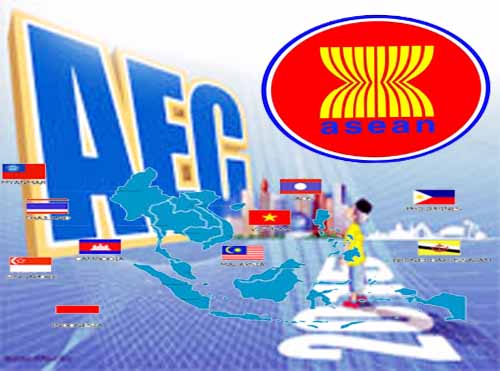
| Majority of Vietnamese firms unprepared for AEC | |
The ASEAN Economic Community (AEC), which involves reducing or eliminating tariffs on goods traded between the ten member countries, is planned to be convened on December 31, 2015. But it seems that Vietnamese firms are quite indifferent or unclear about the benefits and consequences of this agreement, and thus risk losing their market share. The reason, according to Dr. Tran Hoang Ngan, member of the National Assembly Economic Committee, is that most firms are too small. “With average capital of VND6 billion ($284,000), Vietnamese firms rarely think about expanding outside the country, so they often perceive economic integration as having nothing to do with them,” Ngan said. “Even local authorities are not sure of the scale and scope of this integration, what opportunities and challenges it presents, and what they have to do to help firms withstand the resulting competitive pressure,” he added. The consequence of this indifference is firms are unprepared. Since Vietnam joined the World Trade Organization seven years ago and subsequently signed a number of free trade agreements, firms from other countries have been flocking to Vietnam and pushed many Vietnamese firms to bankruptcy. “There are many reasons as to why 50,000-60,000 local companies have been dissolved in recent years, but a major one is their inability to compete in the context of economic integration. Many others, including those with famous brands and a large market, have weakened considerably,” Ngan said. Ngan suggested Vietnamese firms and the government be proactive in preparing for economic integration and that the government provide firms with updated information on the AEC. | |
| VIR |
